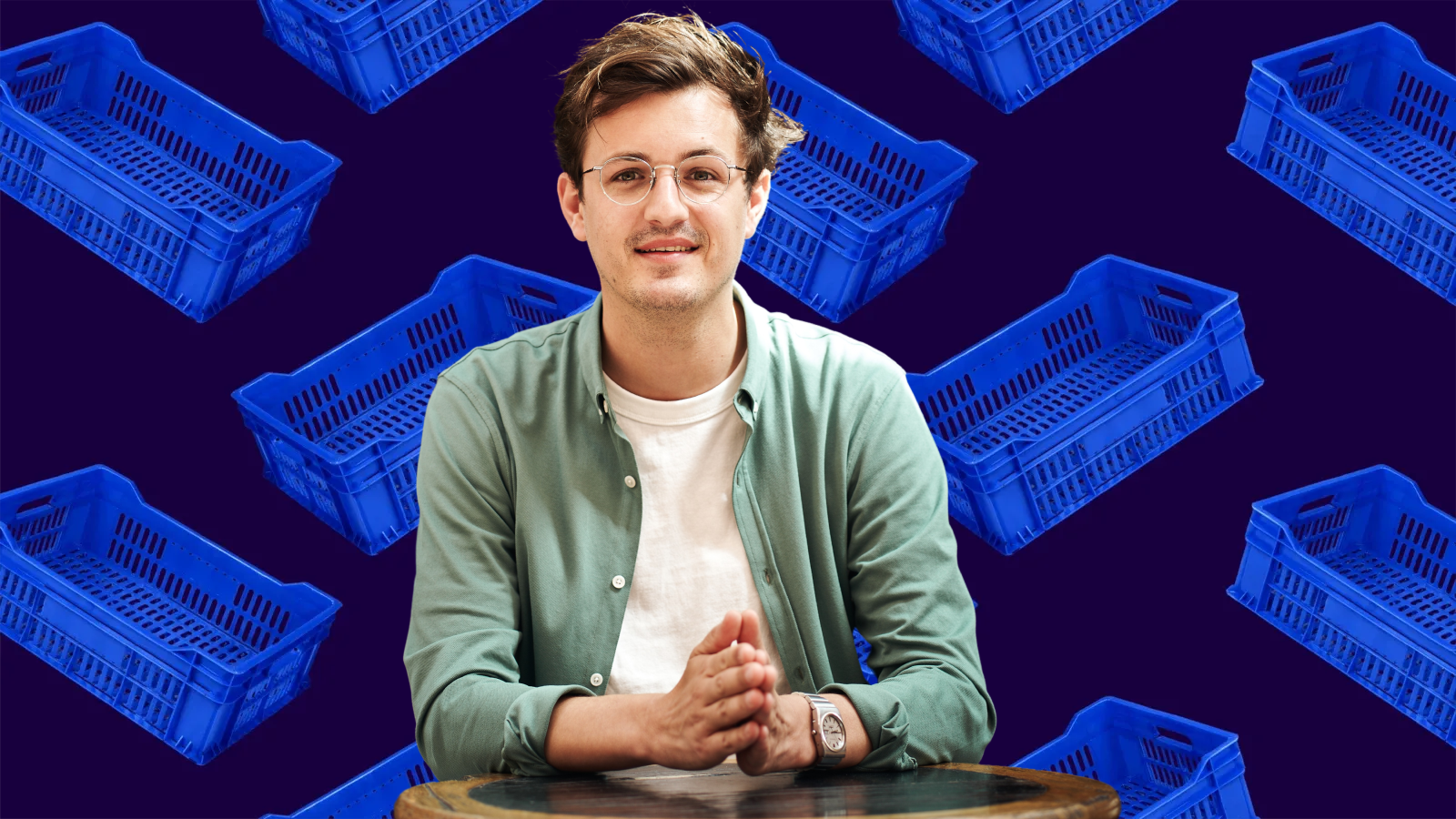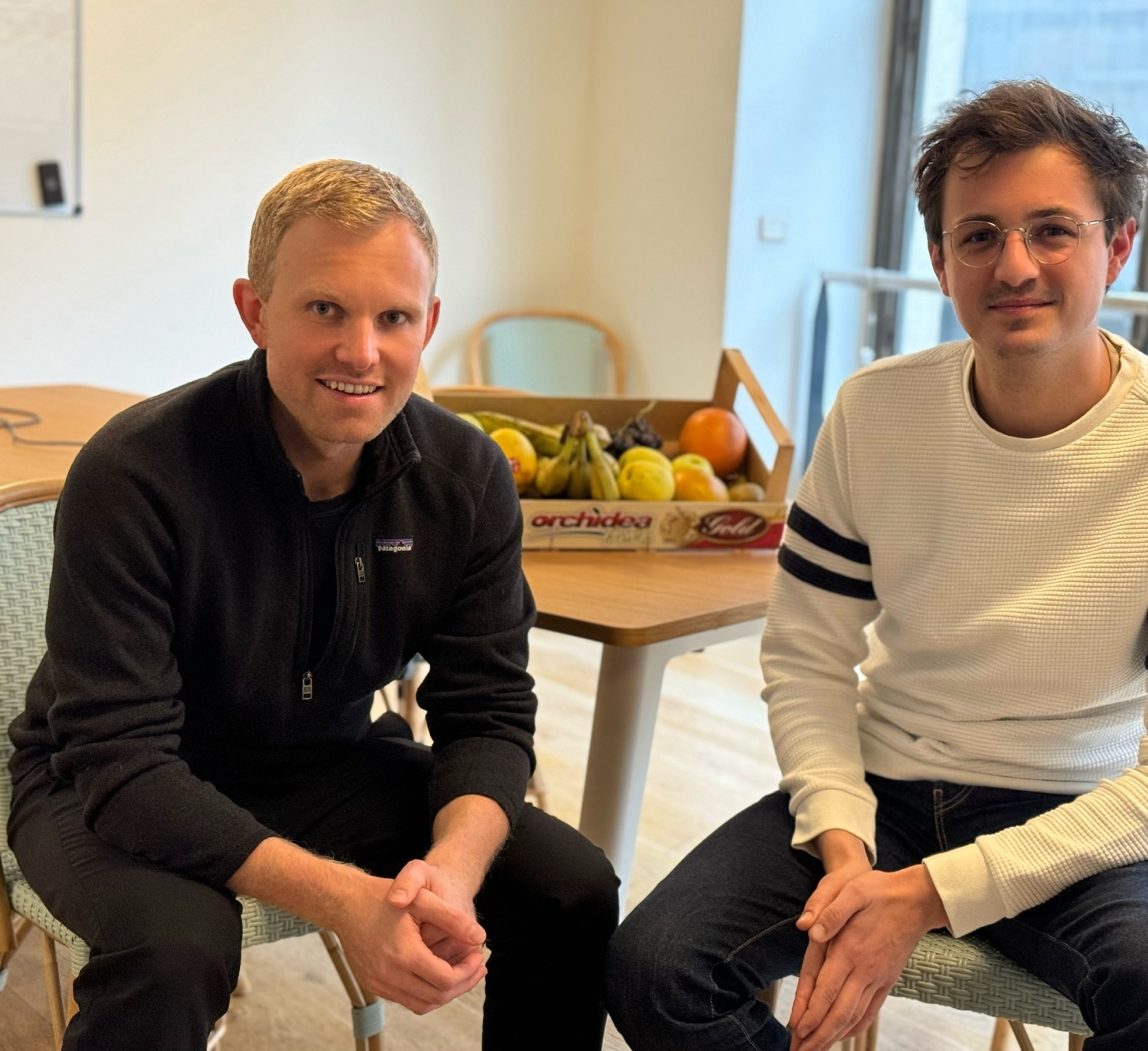
EXCLUSIVE INTERVIEW WITH Grégoire Ambroselli, CO-FOUNDER OF CHOCO.COM
Your company's French charm, reminiscent of Michel & Augustin or Sunday, is truly captivating. Grégoire Ambroselli, as the face of Choco, could you share some personal insights? Who are you?
Wow, that’s a broad question ! Where should I start ? My name is Grégoire, but people call me Greg. I'm French. I have lived in many countries, such as Singapore and Australia, but now my home is Paris. We launched Choco in both France and Germany at the same time in 2018. Our global HQ is based in Berlin, but to be honest, we don’t think in terms of specific countries. At its heart Choco is a group of people, fighting for a global cause; digitizing the food ecosystem to make it more sustainable. We are a solution to a global problem. By essence, this market is globalized. We eat the same avocados from Peru or salmon from Norway wherever we are on the planet. We are connecting players for more transparency, better transmission of information and ultimately less food waste or greenhouse gas emission.
Rocket Internet and Vente Privee undoubtedly paved the way for Choco's foundation. Can you dive into how your tech-driven experiences in these companies shaped the vision and launch of Choco?
Both experiences had a foundational impact on my professional development, confirming to me that the best place for me to grow was in the world of tech. Veepee is a role-model in the B2B2C industry. They designed a unique business model in e-commerce, with time limited private sales. They identified a key environmental and economic issue of waste in the fashion industry. So much waste was generated due to nonsensical fashion codes and they turned this waste into a business opportunity while better connecting supply and the demand. I learned 3 main things from this experience. A) Focus on the supply. To get good demand, you first need good supply. If the supply is good in terms of choice, price and quality, the demand will follow and be loyal. B) Stay hungry and innovative. There are unlimited ways to sell online. We should not take ecommerce for granted but always keep iterating on models to innovate and match market needs and trends. C) Communication and sales are two sides of the same coin. Ecommerce platforms are also strong communication tools. As a brand, you engage with a highly qualified audience that deserves truly thoughtful messaging.At Rocket, I quickly received a lot of responsibility to launch new tech products in undiscovered markets. I learned that a good company is more about good execution than good idea. Especially at an early stage, when you will always find a good reason not to do things, but if you decide to make it happen, you already took the biggest step toward concretisation. Speed is a mindset. And finally, I realized how important culture was to build a talented and driven team, that culture shaping should never be secondary.
“The art of good business ; is being a good Middleman” - Movie: Layer Cake. How does this resonate with Choco's approach, and are there tech parallels you see in your operations?
In my view, the art of good business is about understanding the right problem you are trying to fix, in order to add the right value for your clients. Digitization has the power to bring more transparency into an ecosystem, and help the players of this ecosystem to take more data-driven decisions. The food supply chain is already complex and fragmented enough. No need for new middlemen. We at Choco are not an additional ‘middleman’. We do not pit suppliers against each other. We are an empowering tool to better connect the food players amongst each other. We help them to save costs and increase their revenue through best in class technology.
Choco is at the intersection of a food waste management and a food ordering platform. Can you shed light on how Choco navigates and balances these aspects in the tech-driven landscape?
The food supply chain is highly fragmented and causes half of the food waste globally. It is a trillion dollar problem. The main reason is that it’s mostly offline and hence not optimized. Globally, we produce significantly more than we need.. Hence we believe the right technology can help all players to better order and better manage our precious resources. Our strength is that our revenue is directly correlated to the food waste we avoid. The more we grow as a company, the more we help our customers at any level of the food supply chain to optimize their purchases and sales, consequently, the more we avoid food waste. For restaurant suppliers, we can reduce food waste by up to 80% which can equal up to 5% of their total sales.

Have you noticed a shift from traditional methods of ordering, with more adoption of digital tools within the industry? Is this trend more prevalent in smaller trendy restaurants, or are larger restaurant chains also rapidly adopting these digital tools?
Until 6 years ago, most of the restaurant's suppliers were receiving orders by telephone. Since we launched Choco, we noticed strong behavioral changes. The new generation of chefs are using 10 apps per day in their personal life, and are looking for new solutions to also help them in their work life. All restaurants now understand that technology has a strong potential to help them save time, money and also make their jobs more attractive. For the supplier landscape, technology was always very low on their priorities. But it’s a very competitive market and only the ones who will embrace the digital shift required by the industry will stay competitive in the long run.
Looking ahead, do you see Choco evolving into a tech-enabled financial facilitator for suppliers and chefs, potentially offering a "buy now, pay later" option? How do you envision staying ahead of tech trends in the restaurant industry?
Since the beginning, our strategy has been constant : deeply understanding the needs of our clients (or potential clients), and building the digital tools to solve their problems. That’s what we do : we build tools that make sense for our users. We take the time needed to bring adoption and add true value. Looking forward, we will continue to enable the whole supply chain via our technology, in their day-to-day operations, including finance and accounting. But not only this; it’s just the beginning of a long journey.
In your dealings with businesses, what's the most common reason for rejection? Is it usually tied to hesitancy in adopting new tech tools, or do you encounter businesses with a utopian vision about food waste?
Change is always frightening. Especially in our industry which is an old industry, where bad habits are ingrained in daily work. That’s why our strategy is to build a tool to facilitate the shift towards digital transformation. To do so, we build tools that are very much adapted to how our clients work. For example, our app for restaurants is very much inspired by WhatsApp, there is no need for complex instructions to understand it, no matter your age or nationality.
Does Choco wield control over algorithms that promote products to restaurants? And is there a conscious effort to prioritize qualitative projects over those with ingredients like palm oil?
As part of our Premium package, Vendors can actually promote the products they want to, only to their existing clients using Choco. We do not interfere in the content they decide to promote, other than to push the promotion of produce that is nearing its expiry date, to avoid food waste. As leaders of our industry, we embody its future. We believe our impact can be 10x bigger if technology brings more transparency on product origins; if it reduces the time required for product distribution; and if it empowers the various players to better perform their day-to-day jobs. We believe technology as a communication tool helps to bring more consciousness to the stake-holders to make better decisions, including purchasing better quality products.
Vertical farming is gaining traction in agriculture. How do you view this concept, and do you foresee potential collaborations or impacts on Choco's operations and relationships with suppliers?
Vertical farming is an interesting approach to solving rarefaction of agricultural lands. Any innovation pushing in the direction of more sustainability in the food supply chain is pushing in the right direction and should be encouraged. However, for vertical farming to replace regular farming or make a significant impact, we would need tremendous amounts of time and investment. My question is : since we already waste 40% of the food we produce, aren’t there more immediate steps we can take to make better use of our agricultural resources ? There are, and I believe Choco is a part of it. Numbers speak for themselves. I don’t believe the main issue to solve is generating more land to grow produce, but how do we optimize the distribution of what we already grow.
Artificial Intelligence is a buzzword across industries (Shopify, Notion and more). Is Choco actively involved in AI development, and if so, how does it play a role in enhancing the efficiency of your operations and services?
Artificial Intelligence is not a nice-to-have. It’s redefining the way we all operate businesses. It’s not about “if” we should or should not make most use of it but “how”. We all need to adapt and see how AI can help us to improve our business operations. At Choco, we tackled this topic very early on, providing our vendors with the latest AI technology to read, translate and integrate into their ordering system any inbound orders, no matter the method used by the client (SMS, voicemail, email, Choco app, etc.). It’s a true game-changer for this industry that traditionally depended on the manual entry of the orders, 24/7 in tough conditions. Our technology is helping people in the industry to develop new skills and focus on more adding-value tasks. For the benefit of our restaurant users ! It’s just the first piece of many features we will be able to add to the ecosystem.
INTERVIEWED BY ROMAIN BARON
